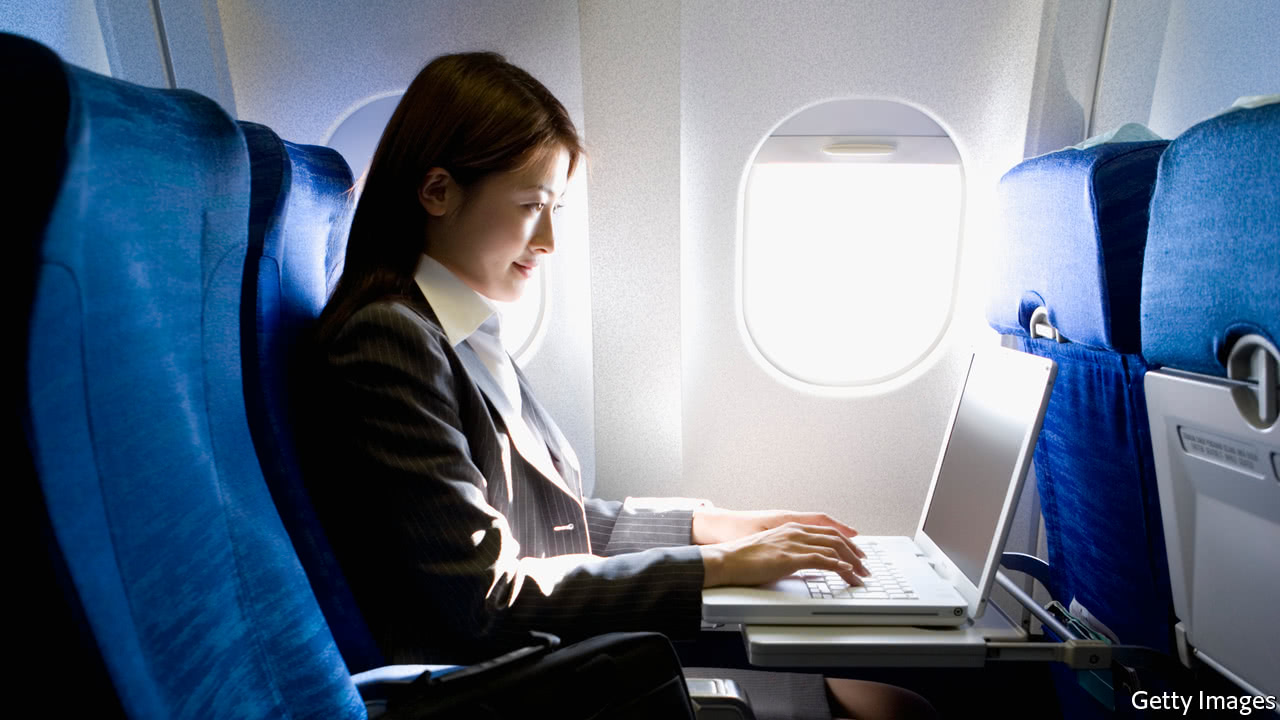
AT A time when all aspects of air travel seem to come with a price tag, one service quite suddenly has become free. And it is not in-flight dining or checking in a bag or securing an exit-row seat.
The increasingly common free service is onboard messaging. Earlier this month, Delta Airlines began allowing passengers to use its Wi-Fi system to send free messages on third-party apps, such as iMessage, WhatsApp, and Facebook Messenger. Passengers can do so on their smartphones, laptops or tablets. (Mobile-network services, like 4G, tend to be unreliable after lift off). Delta is following the lead of Alaska Airlines, which rolled out a similar service earlier this year, as the Los Angeles Times reports, and American Airlines which announced its own plans to offer messaging in the near future.
-
More airlines are offering free Wi-Fi for messaging services
-
What is China’s 19th Communist Party congress and why does it matter?
-
Why Ivanka Trump wants to extend the child tax credit
-
Austria’s next chancellor is expected to be the youngest leader in the EU
-
Ophelia’s strange path
-
The first biography of George Martin, the Beatles’ only producer
Sadly, this is still a far cry from a free internet service. Airlines still charge for browsing and they have a strong incentive to do so. That is because those charges contribute to the whopping $45bn in passenger fees that airlines around the world collected last year.
Nevertheless, there is reason to think that free and fast internet connections could be just around the corner. That is down to improving bandwidths. Gary Leff, a travel blogger, points out that when bandwidth is limited, airlines have to ration it by charging for it. Otherwise you end up with unusably slow speeds, which is what happens on the rare flights that offer free internet.
But now airlines like Delta and American have been introducing satellite internet, as opposed to the current systems which work by planes relaying signals to and from networks on the ground. In the past, carriers have been slow to add satellite internet because installing an antenna on the outside of a plane increases drag and thereby fuel costs. But often where satellite internet is used, internet speeds are much faster. Soon, connections may be robust enough to allow all passengers to browse simultaneously.
And once one major airline provides free, fast internet to all passengers, there will, no doubt, be plenty of pressure on rivals to do the same. Business travellers, students, those who want to stay connected as well as flyers who want more in-flight entertainment will all be willing to pay a little extra for a flight that offers free internet. How much more they will be happy to spend remains to be seen. But just as internet access has spread across hotels and cafés, it will surely spread at 35,000 feet. It is simply a matter of time.
Source: economist
More airlines are offering free Wi-Fi for messaging services